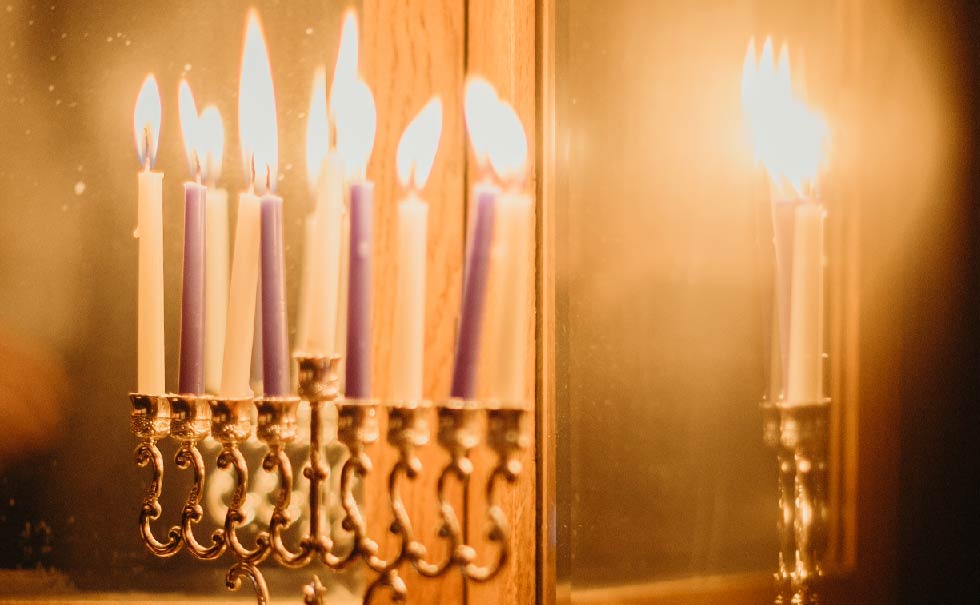Parshat Miketz
In our Parsha this week is one of the most powerful moments in the entire book of Bereshit/Genesis, Yosef is rescued from the pit, shaved and dressed and brought before Pharaoh to interpret his dreams.
Yosef achieves much more than just an interpretation, he also provides advice of what should be done now that he has interpreted the dreams as an indication of impending famine[1]:
יַעֲשֶׂ֣ה פַרְעֹ֔ה וְיַפְקֵ֥ד פְּקִדִ֖ים עַל־הָאָ֑רֶץ וְחִמֵּשׁ֙ אֶת־אֶ֣רֶץ מִצְרַ֔יִם בְּשֶׁ֖בַע שְׁנֵ֥י הַשָּׂבָֽע׃
“And let Pharaoh take steps to appoint overseers over the land, and organize Others (to) take a fifth part of the land of Egypt in the seven years of plenty.”
Yosef provides a solution that essentially cannot lose: if there is indeed a famine, the country will be ready for the event, if his interpretation proves false the government will still have gained a significant level of grain in taxes and most importantly, Pharaoh is not to blame – by appointing someone else in charge the blame of failure can also be appointed and if successful then it was the intelligence of Pharaoh in selecting such a worthy candidate in the first place!
In last weeks Parsha I discussed the idea that the Torah is providing a cyclic narrative:
The transformation of slave, accused prisoner to viceroy of an entire country, second only to Pharaoh himself[2] is an amazing moment and one that is reflected also in the life of Moshe:
Although the order is different as well as the details, the fundamental repeating motifs are very clear, it is interesting that Moshe does not change his name whereas Yosef is given the Egyptian name Zaphnath-paaneah which is understood to mean[3]: “One who discovers hidden things” – an interesting aside[4] is that Moshe (משה) backwards spells Hashem (הָשֵׁם), the repeating theme of changing names is seen clearly with both Abraham and Yaakov.
Moshe himself is cast to the river[5], rescued and raised in the palace of Pharaoh only to be exiled for his crimes and return as a powerful leader[6] – the similarities between him and Yoseph are immediately noticeable even if they are not exactly identical.
Our Torah is teaching a fundamental lesson about Jewish leadership; both Yosef and Moshe were men of visions: one worked in the mechanism of dream interpretation and the other in the ability to accurately tell over the divine message received from Hashem – the classical work of Jewish philosophy Derech Hashem[7] discusses the difference between these experiences as follows[8]:
נבואת הנביאים על ידי מראה או חלום: כלל כל הנביאים חוץ ממשה נבואתם ע״י מראה או חלום וכמ״ש במראה אליו אתודע בחלום אדבר בו והיינו שהקב״ה משתמש מן החלום החקוק כבר בטבעם של בני האדם להיות לאמצעי להמשיך על ידו הנבואה לנביא ולא שהנבואה והחלום ממין א׳ אלא שהחלום הוא דבר הגון לפני חכמתו ית׳ שיהיה אמצעי להמשך הנבואה על ידו ולא אמרו ז״ל (ברכות נז:) חלום א׳ מס׳ בנבואה אלא מצד היות בו הגדה והודעה למעלה מגדר ההודעה הרגילה לבני האדם כפי חק השכלתם וכמ״ש למעלה
The prophecy of the prophets is through a vision or a dream: The prophecy of the category of all prophets besides Moses is through a vision or dream, as it is stated, “I make Myself known to him in a vision, I speak with him in a dream.” And that means that the Holy One, blessed be He, makes use of dreaming, which is already embedded in people’s nature, to be a means through which to bring down prophecy to the prophet. And it is not that dreaming, and prophecy are of the same kind, but rather that dreams are a fitting thing in front of His Wisdom, may He be blessed, through which to bring down prophecy. And they, may their memory be blessed, only said[9]: “A dream is one sixtieth of prophecy,” from the aspect of it conveying greater disclosure and information than the regular information that comes to people according to their [conscious] ways of understanding (as we have mentioned above).
The text then continues[10] to explain that the level of prophesy of Moshe was not like this and far more clear and also achieved whilst fully awake and conscious rather than in a dream, trance or vision.
Moshe and Yosef were able to achieve something beyond interpretation or accurate recording; they were able to perceive a practical solution or implementation to the prophetic experience, a vision whilst a high a powerful experience for the one who has achieved means little to everyone else unless it carries a pragmatism that allows others to connect to it:
Jewish leadership is not simply about reading books, praying or having a vision – it is about our ability to expedite; in both cases the overwhelming lesson of Yosef to Pharaoh is that a need for delegation is required, much like the lesson of Jethro to Moshe[11]; the true ability of a leader is to surround him or herself with those who can practically achieve their vision. In the case of ourselves, we need all of Israel for the ultimate prophetic vision of Hashem: a holy nation of teachers who act with righteousness and understanding, building a society accordingly to values of social welfare and ethical monotheism – such a vision and dream is not something achievable by a single person but rather requires the collective efforts of an entire nation.
Our currently festival of Chanukah is arguably concerned with exactly this, at a time when the study of Torah and the culture of our people was threatened we responded with guerilla warfare against a foe much larger and certainly better trained and prepared for combat, our Maccabean ancestors overwhelming chose action – we educate our children to light candles in the darkness, to be part of the miracle themselves, to retell the story of standing against the many, the triumph of what can happen when profound faith in Hashem meets pragmatism: We discover the miracle is not that the lights burned for 8 days after the reinauguration of the temple but that they have burned with the spirit of our people for more than 2000 years.
Shabbat Shalom.
Rabbi Jonathan Goldschmidt 2022 ©
[1] Bereshit/Genesis: 41:34
[2] Ibid: 41:40
[3] Onkelos on Bereshit/Genesis: 41:45
[4] From the Kabbalistic sources
[5] Shemot/Exodus: 2
[6] Ibid: 4:30
[7] Written by Moshe Chaim Luzzatto (Hebrew: משה חיים לוצאטו), who lived between 1707 to 1746, also known by the Hebrew acronym RaMCHaL (or RaMHaL, רמח”ל), was a prominent Italian Jewish rabbi, kabbalist, and philosopher: There is evidence from his letters that he authored more than 40 books and shorter pamphlets, however many were lost/destroyed.
[8] Derech Hashem:3:5:2
[9] Talmud Berakhot 57b – see from 56b for a fascinating discussion on the various signs in dreams and their interpreted meanings by Chazal.
[10] Derech Hashem:3:5:5-7
[11] Shemot/Exodus 18:15-18




